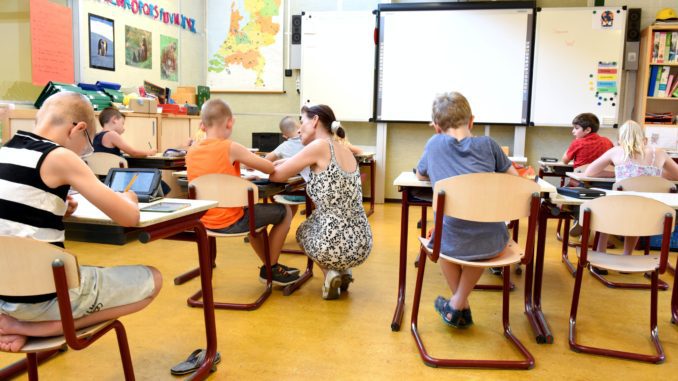
In their first 5 years of their life, children tend to be busy understanding and make sense of life around. Their brains must be actively connected to observe, categorize, test, and solve the problems they face. The children also learn about what happens to their body and control their own feelings or emotions. Those connections are very important to their adult life.
So, in kindergarten, they are encouraged to develop those things more optimally. Although some activities to encourage and stimulate the connections can be done at home, some others are not. That’s why; kindergarten just makes their development more complete. There are some principles to learn in kindergarten. Those principles are covered with interesting and fun activities to let the kids accept them better. What are those principles?
Good Habits
Habits are related to forming naturopaths inside the kid’s brain. Every action he does, it means turning on a certain neuropath. The more often the action is done; the neuropath is getting stronger also. So, the earlier you accustom your kids to good habits, those habits are formed better and stronger. In kindergarten, good habits are always taught. They are starting from simple things like tidying up the toys, saying thank you, saying sorry, and more. Sure, it is expected that until they grow adult, those habits will always be done.
Creativity
Naturally, ideas are important things to develop our life. You can take a look around. Even a small invention like a plate and a spoon must be started from an idea. Ideas deal with creativity to make us better. Even a kid has his or her own ideas also. Unfortunately, their ideas may not be realized well due to limitations. Well, in the kindergarten, children are motivated to develop, realize, or, at least, share their ideas. No matter how silly their ideas are, they have chances to be something bigger in the future.
Social Life and Interactions
Many children already have friends in their environments. For example, they are brothers, sisters, or neighbors. Unfortunately, not all of them have such a good chance. Some children were born to be the only child. Meanwhile, some others live in apartments so that they don’t have many opportunities to meet neighbors at their ages. Kindergartens give those chances. They will meet new friends and interact with them. They also will learn how to socialize well and share what they have with others. It drives them not to be selfish and feel empathy to others.
Intelligence
Of course, since the early age, children’s intelligence must have been prompted. It is a preparation for the next education level. Although kindergartens may not teach them to read and write, at least, introductions of letters and numbers are done. They will learn to recognize letters and numbers through shapes. Sure, the learning process is fun and interesting by doing games, drawing, and singing. Indeed, their ability to absorb knowledge must be different from one to another. That’s not the point. More importantly, they are learning.
